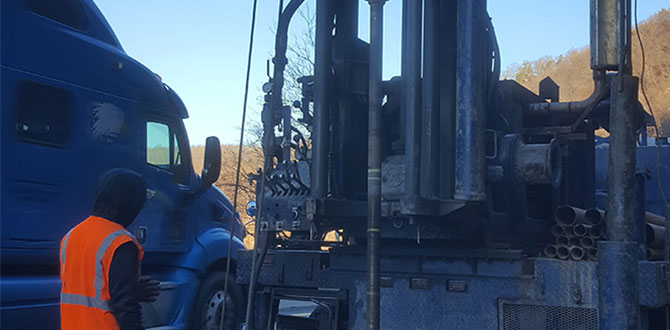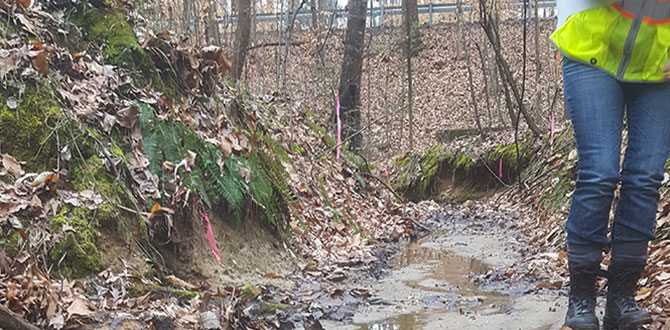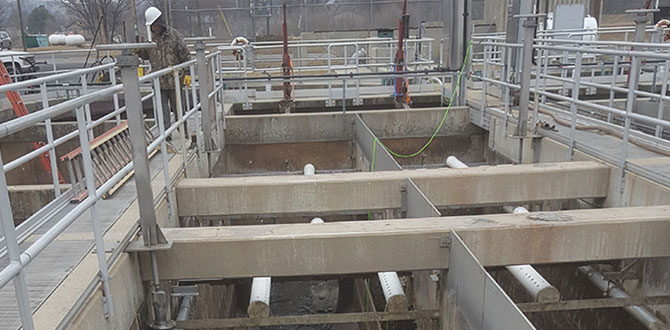After serving as a company commander for Alpha Company, 40th Engineer Battalion located in Texas, I was trying to figure out my next job assignment. I had established myself as a very competent tactical engineer in a combat-related role and wanted to branch out of my comfort zone. I always viewed myself as career Army guy and was looking for an opportunity to grow beyond the tactical and operational levels of the Engineer Regiment. I yearned to be exposed to a different environment focused on growing me into a more strategic, adaptive, and innovative executive-level leader. Through the Training with Industry Program (TWI), I was given the opportunity to get first-hand experience in executive management of a private organization from Dewberry.
Professional Growth: A Few of My Experiences at Dewberry
I started in Dewberry's national programs services and resilience solutions branch for the first few months of my fellowship. Being involved in the planning associated with the hurricane response and the flood mapping requirements from the Federal Emergency Management Agency (FEMA) opened my eyes to the coordination required between private industry and federal agency services. Obtaining my Certified Flood Plain Manager (CFM) certification provided insight into the overall flood management process. I plan to use my recently acquired knowledge of emergency and flood management services as a stepping stone inside the Pittsburgh District of U.S. Army Corps of Engineers (USACE).
Before arriving at Dewberry, I had recently obtained a master's degree in geological engineering from Missouri Science and Technology after completing the Captain's Career Course Army education. I was given an opportunity to travel to the Bloomfield, New Jersey, office and work closely with Geotechnical Engineer James Boudreau on the I-80 Westbound Rockfall Stabilization project and the rehabilitation of the Pulaski Skyway. These two projects showed me the importance of my geotechnical and geological degrees, while providing some technical knowledge I was seeking from the fellowship.

Since USACE in Pittsburgh has a strong focus on environmental protection, I wanted to spend some time working within the Engineer Branch on water resources or stormwater management. I was able to learn about the cause and effect from total maximum daily loads (TMDL) of nitrogen and phosphorus pollution entering the Chesapeake Bay and the positive impacts Dewberry is having on reducing or mitigating the TMDLs entering the bay. While assisting on the I-64 Highway Expansion project near Williamsburg, Virginia, we calculated potential TMDL credits from eroded outfalls resulting from mitigation measures and conducted wetland delineation prior to construction.

Army posts typically maintain their own water distribution and wastewater treatment operations with the assistance of USACE. After my Pittsburgh USACE District responsibilities are complete, I could find myself filling a Division Engineer role on a military post. Working with Patrick Lewis, I visited pump stations in the Northern Virginia area and the refurbishment of a wastewater treatment plant in West Virginia. These opportunities gave me a great look into project management responsibilities during construction as well as pitfalls associated with quality assurance and quality control with a focus in wastewater.

Conclusion of a Great Experience
As my completion of the program rapidly approaches, I will continue to focus on my remaining projects at Dewberry and in finalizing my civilian certifications. A special thanks to Jean Huang, retired Col. Grant Smith, retired Maj. Gen. Mike Walsh, Maj. Gen. Bo Temple, Jim Filson, Kurt Thompson, Joe Wells, Rob Snow, Don Stone, Dan Pleasant, and the Dewberry family. All these leaders took the time to meet often or provided opportunities to learn from the best.